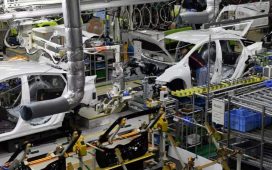Greenpeace is threatening to take legal action against the government as it emerged a target to lift millions of struggling households out of fuel poverty is likely to be missed.
Government plans to upgrade the energy efficiency of homes will help fewer than 6% of fuel poor households by 2030, according to the environmental campaign group.
Legislation was introduced in 2014 to set a target to reduce fuel poverty, where people cannot afford to heat their home to an adequate temperature. Ministers committed to improve as many fuel poor homes in England as is “reasonably practicable” to a minimum energy efficiency rating of C by the end of 2030.
Energy performance certificates (EPC) were introduced in 2007 to measure energy efficiency – including insulation, heating and lighting – and are ranked from the most efficient, A, to G, which is the least efficient.
However, government data obtained under a freedom of information request revealed current policies would only reduce the number of households that were in fuel poverty in 2020 by 12% up to 2030.
The request also revealed that the government is working from outdated 2020 data collated before the energy crisis. The rapid increase in wholesale energy prices since 2021 has pushed millions of households into fuel poverty.
National Energy Action estimates there are now 6.7 million UK households in fuel poverty – a figure that has more than doubled since 2020. This means that only 5.8% of fuel poor households would be upgraded by 2030 – leaving nearly 95% of households in fuel poverty.
In a letter to the energy security secretary, Grant Shapps, Greenpeace said it would take legal action unless government committed to reviewing its strategy to tackle fuel poverty and sets out how it will hit targets.
Greenpeace UK’s head of climate, Mel Evans, said: “By throwing in the towel on tackling fuel poverty the government has shackled the poorest people to the coldest homes and the highest bills.
“Almost a quarter of all households are now in fuel poverty. This is a national crisis yet the government’s failing strategy for tackling it means that at this rate it won’t meet its legally binding 2030 target until close to the end of the next century.”
after newsletter promotion
The UK has the least energy efficient housing in western Europe, which means high heating costs for low-income households. It also means housing is directly responsible for about 14% of the UK’s total greenhouse gas emissions, exacerbating the climate crisis.
In November, the chancellor, Jeremy Hunt, announced further support to improve Britain’s leaky housing stock. He said £6.6bn would be spent during this parliament on energy efficiency, and announced a further £6bn of funding from 2025.
A cross-party committee of MPs said earlier this year that a national “war effort” on energy efficiency was required to cut energy bills, reduce climate-heating emissions and ensure energy security.
A Government spokesperson said: “The fuel poverty target for England is to ensure that as many fuel poor homes as possible achieve a minimum energy efficiency rating of band C by 2030. Thanks to government support, the number of homes with this rating or above has already gone from 13% in 2010 to 46% and rising.”











